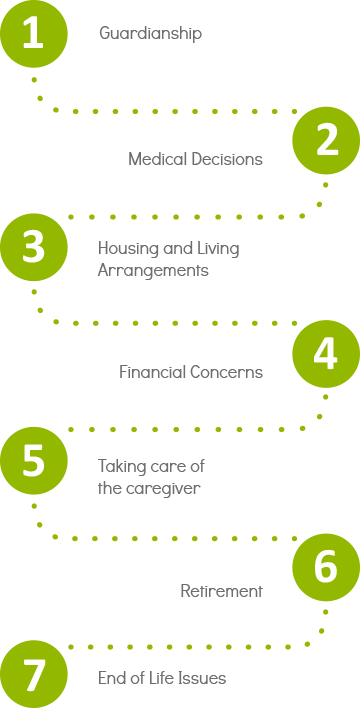
Story
“There must be a better way”… I said to myself after my dear friend in his late sixties became delusional and was “admitted” to the psychiatric ward of the hospital. Having been divorced for years, with two adult children living away, he had a close circle of friends where he lived. Within days the children “remembered” Daddy (and Daddy’s house with no mortgage and ample monthly pension income) and came for an “extended” visit home.
They first promptly isolated Daddy from all of his friends disallowing any visitors then drew on his bank account showing off new laptops and refused to return Daddy’s credit cards. Then they forged his signature on the contract for sale of his beloved property by the lake.
As his treatment continued they attempted to “persuade” Daddy to sign his house over to them and to give them the Powers of Attorney so they could make all financial decisions. Despite having been requested by his lawyer to provide notice of any Court applications, they applied to Court behind the lawyer’s back and without any notice to him. Yes, you’ve guessed, they did get the Order of the Court and all of the powers to make decisions about him. The alienation continued, no phone, no new clothing, no money spent on Daddy. As Daddy’s needs were growing so was their inheritance… As tears were rolling down my cheeks at the funeral of my dear friend, I thought, “There must be a better way”…
What is it?
Elder mediation is a process of resolving any conflict involving an older adult. Like any other mediation it is voluntary and confidential but also provides flexibility in terms of where it is to be held and who is to participate. Sometimes an older adult may have physical limitations (e.g. unable to climb the stairs to the mediator’s office due to a hip replacement surgery) or may wish to have support people to be included such as a neighbour friend of many years. Elder mediation is different from other forms of mediation in that it is usually multi issue, multi-party and intergenerational.
Why Elder Mediation?
Families will have no choice but to engage in difficult conversations about a lot of challenges arising in the aging process which will lead to a variety of conflicts. The population age 65+ of Canada has just reached 24%; after age 65, about 1 in 3 Canadians will develop a disability (which can be mental, physical, or other health condition) and by the year 2026 more than 3 million people over 65 years of age will require assistance because they will experience some level of decreased functioning (Government of Canada, 2005). Changes are coming. Elder mediation, not litigation, is the answer. How will YOU respond?
Is Elder Mediation different from other Family Mediation?
Yes. In order to become certified as an elder mediator with Family Mediation Canada, in addition to the basic training requirement in conflict resolution and mediation theory “Specific Elder Mediation” training involves a minimum of 100 hours of training in such issues as elder abuse, family life cycle and intergenerational dynamics, balance of power, grief and loss, ageism, dementia and chronic diseases and ethical issues. As well as a three hour written exam and a one hour mediation which is recorded and sent to the FMC for evaluation. Why do I mention the requirements? Because a colleague at a mediation conference upon hearing of my certification said: “Oh, it’s a new interesting area of mediation I will just add it to my website…”
Top 7 Issues in Elder Mediation




